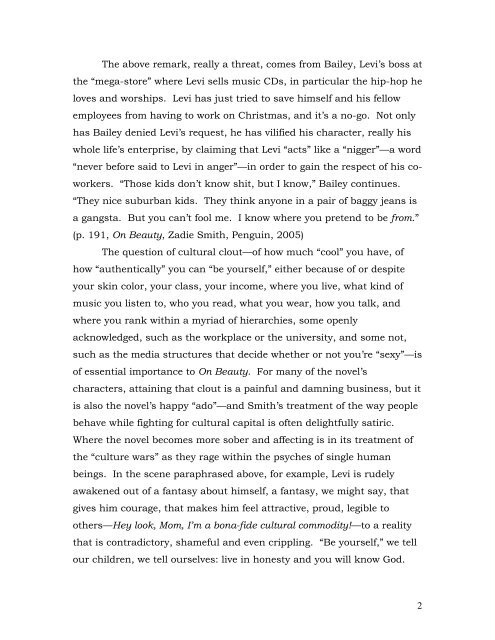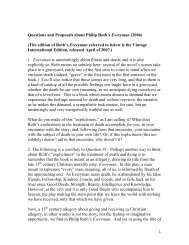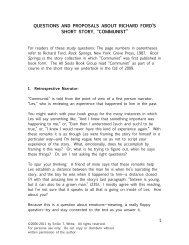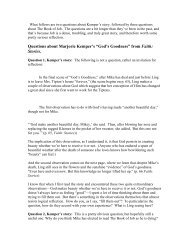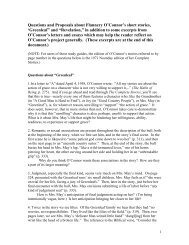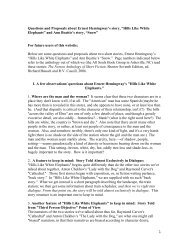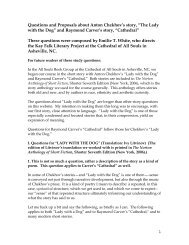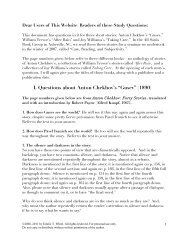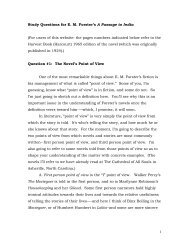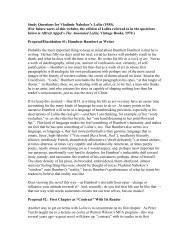Zadie Smith's “On Beauty” - Center for Spiritual Resources
Zadie Smith's “On Beauty” - Center for Spiritual Resources
Zadie Smith's “On Beauty” - Center for Spiritual Resources
Create successful ePaper yourself
Turn your PDF publications into a flip-book with our unique Google optimized e-Paper software.
The above remark, really a threat, comes from Bailey, Levi’s boss at<br />
the “mega-store” where Levi sells music CDs, in particular the hip-hop he<br />
loves and worships. Levi has just tried to save himself and his fellow<br />
employees from having to work on Christmas, and it’s a no-go. Not only<br />
has Bailey denied Levi’s request, he has vilified his character, really his<br />
whole life’s enterprise, by claiming that Levi “acts” like a “nigger”—a word<br />
“never be<strong>for</strong>e said to Levi in anger”—in order to gain the respect of his coworkers.<br />
“Those kids don’t know shit, but I know,” Bailey continues.<br />
“They nice suburban kids. They think anyone in a pair of baggy jeans is<br />
a gangsta. But you can’t fool me. I know where you pretend to be from.”<br />
(p. 191, On Beauty, <strong>Zadie</strong> Smith, Penguin, 2005)<br />
The question of cultural clout—of how much “cool” you have, of<br />
how “authentically” you can “be yourself,” either because of or despite<br />
your skin color, your class, your income, where you live, what kind of<br />
music you listen to, who you read, what you wear, how you talk, and<br />
where you rank within a myriad of hierarchies, some openly<br />
acknowledged, such as the workplace or the university, and some not,<br />
such as the media structures that decide whether or not you’re “sexy”—is<br />
of essential importance to On Beauty. For many of the novel’s<br />
characters, attaining that clout is a painful and damning business, but it<br />
is also the novel’s happy “ado”—and Smith’s treatment of the way people<br />
behave while fighting <strong>for</strong> cultural capital is often delightfully satiric.<br />
Where the novel becomes more sober and affecting is in its treatment of<br />
the “culture wars” as they rage within the psyches of single human<br />
beings. In the scene paraphrased above, <strong>for</strong> example, Levi is rudely<br />
awakened out of a fantasy about himself, a fantasy, we might say, that<br />
gives him courage, that makes him feel attractive, proud, legible to<br />
others—Hey look, Mom, I’m a bona-fide cultural commodity!—to a reality<br />
that is contradictory, shameful and even crippling. “Be yourself,” we tell<br />
our children, we tell ourselves: live in honesty and you will know God.<br />
2


